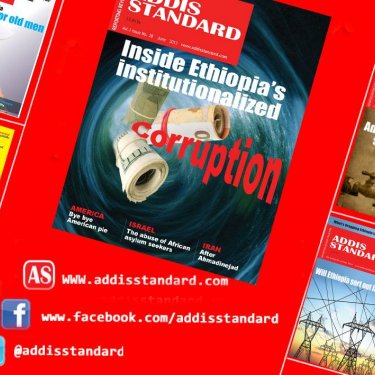Popular news site suspended arbitrarily in Ethiopia

Reporters Without Borders (RSF) condemns the sudden withdrawal of a popular news website’s licence yesterday in Ethiopia – the latest escalation in a crackdown on press freedom in which many journalists have been arrested or deported. The crackdown is without precedent since Abiy Ahmed became prime minister and marks the end of the honeymoon between Abiy and the media.
Yesterday’s latest victim was Addis Standard, a news website that is visited by several million people every month and is one of the Ethiopia’s most critical media outlets.
When several of its representatives went to the headquarters of the Ethiopian Media Authority, the media regulator, with the original of its licence yesterday in response to a summons to address an “administrative issue,” the licence was withdrawn at the end of a 20-minute meeting without any explanation or any of the site’s articles being cited.
“We were recently celebrating the enactment of the new media law but when you see that it is undermined by the very same institution that is supposed to enforce and implement this law, it is depressing,” Addis Standard founder and editor Tsedale Lemma said.
The website was given no written notification, although one is required by the new media law, which parliament approved in February. The requirement for administrative sanctions to increase gradually in severity was not respected either. Under the new law, a media outlet should be given 30 days to take down a contentious article or should be fined, before a suspension is possible.
The explanation that the EMA finally provided was not very convincing. It issued a statement accusing the website of “legitimising a terrorist group” by calling it a “defence force.” The EMA was alluding to the Tigray People's Liberation Front (TPLF), against which federal government forces have been fighting since last November in the northern Tigray region. The Ethiopian parliament recently declared it to be a “terrorist” group.
The EMA did not respond to emails, messages and calls from RSF about the suspension.
“It is regrettable that the agency in charge of ensuring respect for the new media law has trampled on it at the first opportunity by imposing a hasty sanction, without any grounds and in violation of all the established legal provisions,” said Arnaud Froger, the head of RSF’s Africa desk.
“We urge the Ethiopian authorities to stop using the war in Tigray as a pretext for silencing independent and critical media voices. This media outlet must be able to resume operating, the imprisoned journalists must be released and reporters must be free to work without fear of reprisals.”
Both Ethiopian and foreign journalists are finding it extremely hard to cover the war, in which thousands have been killed and millions displaced. A dozen journalists were arrested just over two weeks ago for alleged complicity with the TPLF, as RSF reported at the time. In May, New York Times correspondent Simon Marks was expelled because of his coverage of the Tigray conflict, in a move without precedent since Abiy became prime minister in 2018.
Ethiopia is ranked 101st out of 180 countries in RSF's 2021 World Press Freedom Index.



